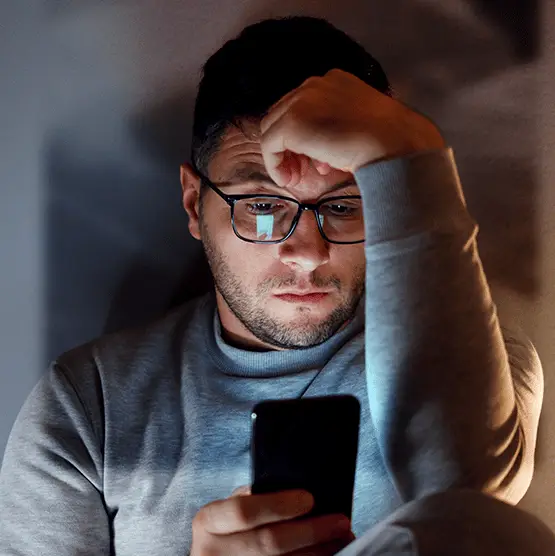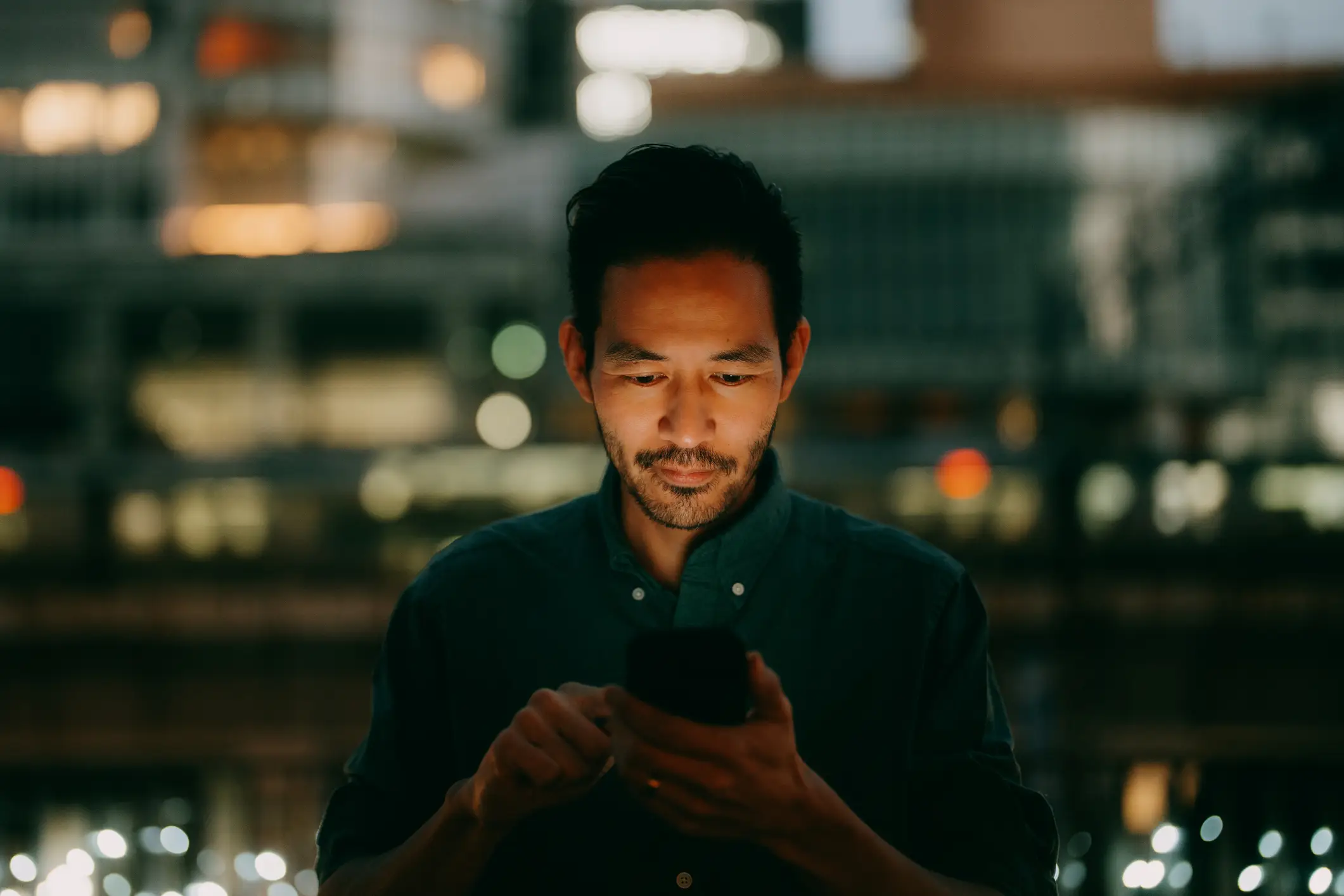
We've all become so addicted to our phones, there's even a word for the anxiety we feel when separated from them: nomophobia.
And while we know it's not exactly great to be doomscrolling on our phones for hours on end, it's hard to tear ourselves away - after all, those tiny devices are where the memes live.
In a new episode of podcast The Diary Of A CEO with Steven Bartlett, Dr Aditi Nerurkar, a stress expert, has broken down just how much our phone addiction can impact our mental health.
If you do want to live a life full of anxiety and stress, Dr Nerurkar said: "Get on your phone, make sure it's on high brightness and scroll through every social media platform, every news platform, watch graphic content, videos of horrible things happening in the world at midnight. And keep doing that off and on until 4 or 5 am."
In all honesty, that scenario sounds pretty familiar - so it's no wonder we don't exactly wake up feeling refreshed.
Advert
In the podcast, Dr Nerurkar revealed the three things so many of us are doing with our phones that are negatively impacting us.
No prizes for guessing the first one: scrolling late at night. And there's a reason we do this - Dr Nerurkar said it's down to a "primal urge" to scan for danger.
"In recent times there's been a lot of bad news, in fact it feels like the onslaught of bad news one thing after another, whether it's a climate disaster or a conflict in a certain part of the world or something or the other is always happening now," she said.
"The information stream is rapid and unprecedented, and so we are constantly scrolling and scanning for danger."
So even though it might go against every fibre of your being, doing something different before bed - like reading a book or taking a bath - might actually do you the world of good.

And there's no doubt about it - the world can be a pretty scary place, with our social media feeds often flooded with upsetting videos. Constantly looking at this kind of content, Dr Nerurkar said, can trigger the fight or flight response in you.
"Graphic images and videos on your phone can increase your risk of PTSD and mental health conditions, as it triggers the fight or flight response and can lead to indirect trauma," she said.
"Studies that your risk of PTSD increases when you consume graphic images, even if that thing that you're consuming is happening thousands of miles away, like any conflict, any climate disaster, anything."
The third disturbing phone habit she mentioned was the way we're constantly reaching for our devices. It's basically second nature to grab your smartphone and start scrolling - but Dr Nerurkar said it can lead to "mobile phone dependency".
Her advice for all of this? Limit phone usage to 20 minutes a day - which likely would be a bit of a challenge for a lot of us.